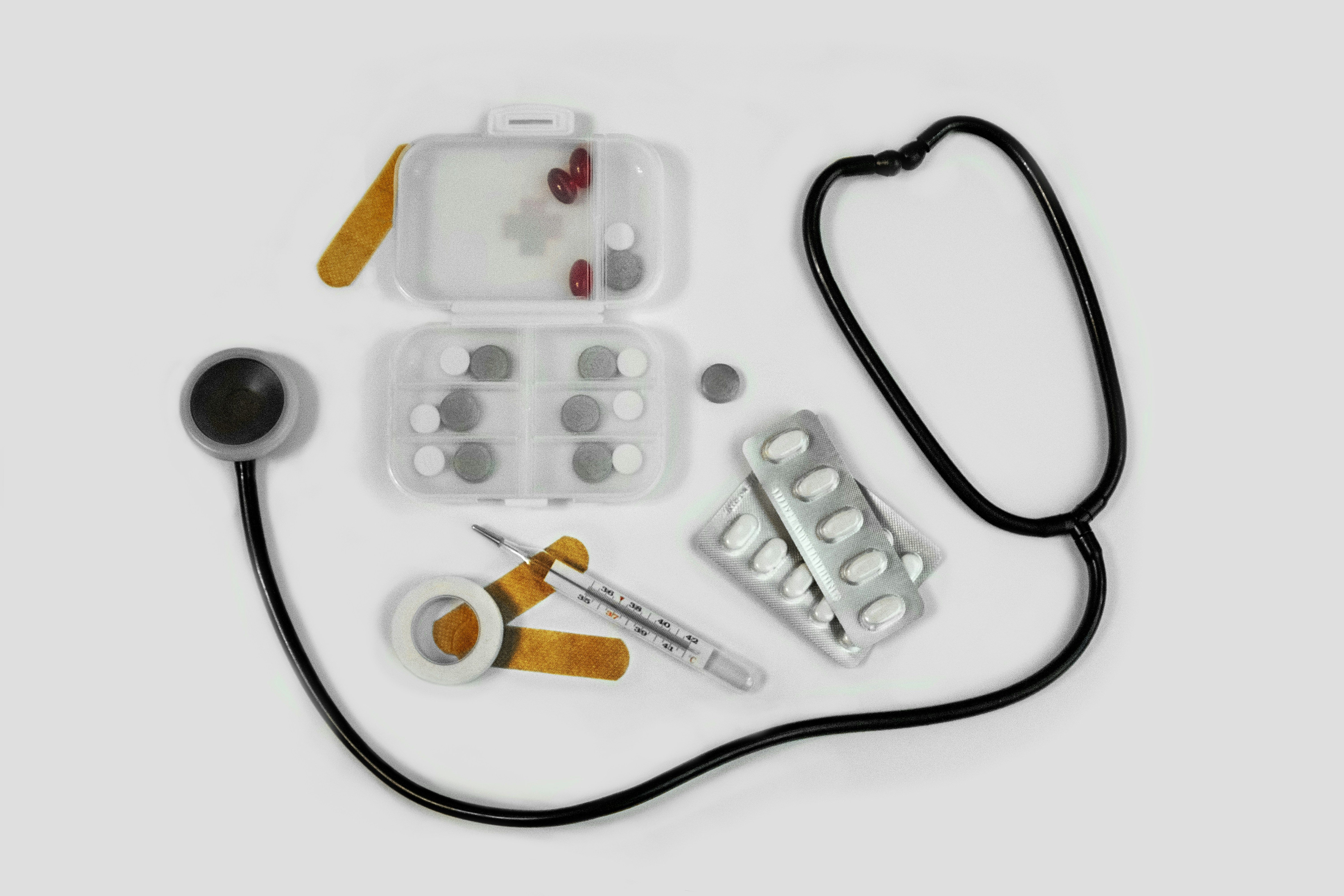Ever had a persistent stuffy nose that just wouldn't clear up? It's possible that you were dealing with a sinus infection, also known as sinusitis. Sinusitis is the inflammation of the sinuses, which are air-filled spaces in the skull and face connected to the nose and throat.
Sinus infections are a common issue, affecting many people each year. In fact, in 2018 alone, about 2.7 million visits to doctors' offices in the United States were due to chronic sinusitis.
In the following sections, we will cover everything you need to know about sinus infections. We will discuss the different types of sinusitis, how to recognize their symptoms, understand the best prevention strategies, and explore the most effective treatment options, including online sinus infection treatment.
Different Types of Sinus Infections
- Acute Sinusitis:
Acute sinusitis refers to the temporary inflammation of the sinuses, usually lasting less than a month. It often begins with symptoms such as sniffles and a cold. Fortunately, most people find relief from these symptoms within about 10 days. - Chronic Sinusitis:
Chronic sinusitis, also known as chronic rhinosinusitis, occurs when sinus symptoms persist for over 12 weeks, even with treatment. Individuals with allergic rhinitis or asthma are more susceptible to chronic sinusitis due to their easily inflamed air passages. However, it's important to note that allergies or asthma are not the sole causes. Other factors, such as infections, fungi, deviated septum, nasal growths (polyps), or a weakened immune system, can contribute to chronic sinusitis.
By understanding the different types of sinus infections and their causes, you can better identify and manage your symptoms.
Symptoms of Sinus Infections
It is important to identify the symptoms of a sinus infection early. If you notice any of the following symptoms, consider consulting a doctor:
- Persistent stuffy nose
- Continuous runny nose
- Facial pain or pressure
- Persistent headaches
- Post-nasal drip
- Sore throat
- Chronic cough
- Persistent bad breath
- Fever
Causes:
Sinus infections occur when fluid accumulates in the sinuses, which are air-filled pockets in the face. This accumulation of fluid creates an environment that encourages the multiplication of germs. While most sinus infections are viral in nature, bacteria can also be a cause.
Source:CDC Gov
Getting the Right Diagnosis
Obtaining an accurate diagnosis is crucial when dealing with sinus issues. Sometimes, what may initially appear as a simple cold can be something more complex. This is where the expertise of a healthcare professional becomes invaluable. They have the knowledge and experience to identify the subtle differences and guide you towards effective treatment.
Fortunately, with the advent of telehealth, accessing medical advice has become more convenient than ever. Telehealth professionals offer a streamlined option for obtaining a proper diagnosis without having to leave the comfort of your home. They can conduct initial assessments, provide guidance on home care, and if necessary, direct you to in-person care.
When you consult a doctor, whether it's in person or online, they may recommend several tests to accurately diagnose a sinus infection. These tests include:
- Visual check: The doctor will examine your nasal passages for redness, swelling, and nasal discharge.
- Endoscopy: This procedure allows the doctor to directly visualize and assess the state of your nasal passages.
- CT scan: In cases of persistent or non-responsive infections, a CT scan can provide detailed images to aid in diagnosis.
- Mucus cultures: By analysing a sample of mucus, doctors can identify the specific cause of the infection.
- Consultation with an allergy and immunology specialist: If allergies or immune system issues are suspected, a consultation with a specialist can help determine the underlying factors contributing to the sinus infection.
- Biopsies: In severe cases, biopsies may be performed to rule out complications or rare conditions.
Source: American College of Allergy, Asthma & Immunology
These diagnostic tests ensure that you receive appropriate treatment tailored to your specific condition. It is important to consult with healthcare professionals to accurately diagnose and manage sinus infections.
Treatment Options
Below, we have listed some treatment options for Sinus infections.
- Antibiotics:
While antibiotics are the standard medicines for bacterial infections, they are not always needed. But, if your infection doesn't improve after a week or so, your doctor may prescribe you antibiotics.
Note: Sometimes, doctors will say to wait a few days before starting antibiotics to see if your body can fight off the infection itself. - Nasal Sprays:
These help with the swelling in your nose, by shrinking swollen nasal passages, but use them for only three to four days to avoid more issues like the rebound phenomenon. - Antihistamines:
If allergies are making your sinus problems worse, these can help fight those allergic symptoms, and calm things down. - Nasal Corticosteroids:
These sprays target the swelling in your nose and sinuses and are safe to use over long periods of time. - Nasal Washes:
Rinsing your nose with saline can help clear out mucus and make breathing easier. - Surgery:
If other treatments aren’t working and you keep getting infections, surgery might be suggested to fix any physical problems in your sinuses.
Always talk to your doctor to figure out the best treatment for you.
Source: American College of Allergy, Asthma & Immunology
Prevention and Long-term Management
Here are some simple steps to prevent Sinus infections:
- Wash your hands often to keep germs away.
- Get vaccines like the flu shot to protect yourself.
- Strictly avoid coming in contact with people who have upper respiratory infections.
- Don't smoke and stay clear of second-hand smoke.
- Use a clean humidifier to keep the air in your home moist.
Source: CDC Gov
A Quick Recap of Key Points and Conclusion
Let’s summarize whatever we have learned above:
- Sinus infections, also known as sinusitis, are common and can range from acute to chronic.
- Symptoms include a stuffy or runny nose, facial pain, and persistent cough.
- Proper diagnosis is key, and telehealth can simplify this process. It offers options for online sinus infection treatment at home.
- Treatment options vary, from watchful waiting to antibiotics and nasal sprays.
- Preventive steps include hand hygiene, vaccinations, and avoiding smoke.
Remember, if you're dealing with persistent or severe symptoms, consulting a healthcare professional is crucial. Take care of your sinuses, and they'll take care of you.




